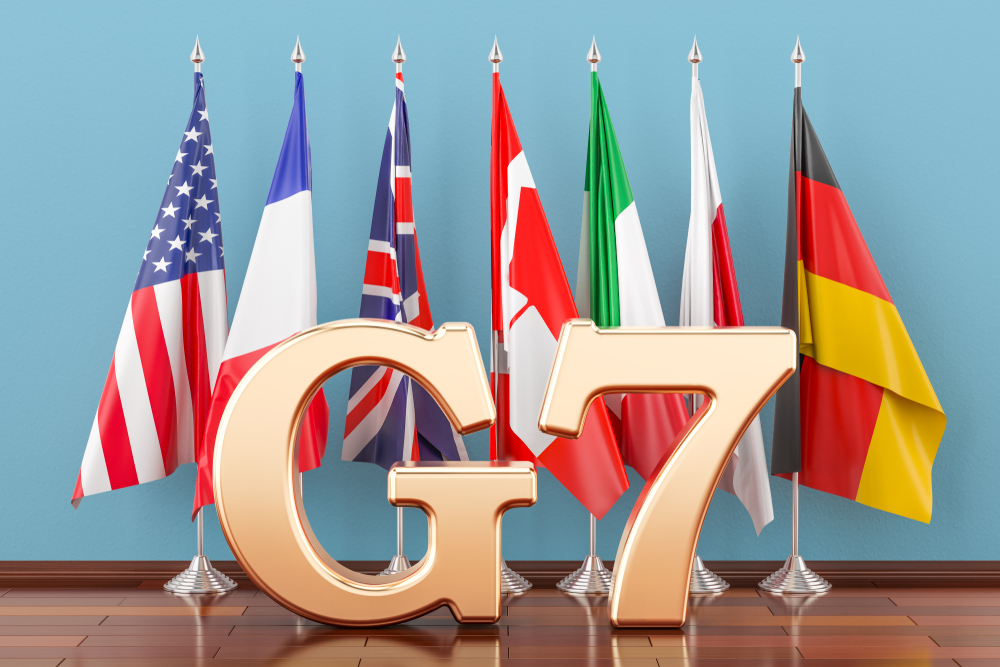The G7 and G20 summits represent two of the most influential international forums shaping global economic policy and addressing transnational challenges. These gatherings bring together world leaders to coordinate responses to economic crises, climate change, security threats, and emerging technologies. While the G7 emerged from the economic turbulence of the 1970s as an exclusive club of industrialized democracies, the G20 evolved as a more inclusive platform recognizing the growing importance of emerging economies. Understanding their distinct histories, evolving roles, and current significance provides crucial insight into how global governance operates in our interconnected world. Both forums continue to adapt to contemporary challenges, from artificial intelligence regulation to climate action, while geopolitical tensions and the changing balance of global economic power.
Origins and Historical Evolution

The Birth of the G7
The G7’s origins trace back to 1975 when French President Valéry Giscard d’Estaing and German Chancellor Helmut Schmidt initiated the first “World Economic Summit” at Château de Rambouillet. Initially comprising six nations—the United States, France, Germany, Italy, Japan, and the United Kingdom—this Group of Six (G6) emerged in response to the economic challenges of the 1970s, including the oil crisis and the collapse of the Bretton Woods fixed exchange rate system.
Canada joined in 1976, transforming the forum into the G7. The group’s scope gradually expanded beyond monetary policy to encompass foreign policy and security issues during the 1980s. Russia’s inclusion in 1998 created the G8, but Moscow was suspended in 2014 following its annexation of Crimea, returning the forum to its G7 format.
G20’s Emergence as a Global Response
The G20 was established in 1999 as a direct response to the series of financial crises that swept through emerging markets in the late 1990s. Canadian Finance Minister Paul Martin and German Finance Minister Hans Eichel played crucial roles in its formation, recognizing that the G7 alone could not provide adequate financial stability in an increasingly globalized world.
Initially operating at the finance minister level, the G20 was elevated to a leaders’ summit format in 2008 following the global financial crisis. The first G20 leaders’ summit took place in Washington, DC, marking a shift toward more inclusive global economic governance.
Membership and Structure
G7: The Democratic Alliance
The G7 comprises seven advanced democracies: the United States, Canada, France, Germany, Italy, Japan, and the United Kingdom. The European Union participates through the rotating council presidency and the European Central Bank. This forum represents approximately 10% of the world’s population but controls 60% of global net wealth and drives 46% of global GDP.
G20: Broader Economic Representation

The G20 includes 19 countries plus the European Union, representing both developed and emerging economies. Members include Argentina, Australia, Brazil, Canada, China, France, Germany, India, Indonesia, Italy, Japan, Mexico, Russia, Saudi Arabia, South Africa, South Korea, Turkey, the UK, and the US. This broader membership encompasses approximately 80% of global GDP and two-thirds of the world’s population.
Contemporary Roles and Significance
G7’s Focus on Democratic Values
The G7 serves as a platform for like-minded democracies to coordinate responses to global challenges. Recent summits have prioritized defending the “rules-based international system,” addressing Russia’s aggression in Ukraine, and countering China’s assertiveness. The 2024 summit in Italy demonstrated renewed cohesion, with leaders agreeing on a $50 billion loan package for Ukraine using frozen Russian assets.
G20’s Inclusive Global Governance
The G20 has evolved into the premier forum for international economic cooperation, addressing broader challenges including climate change, food security, and sustainable development. India’s 2023 presidency exemplified this inclusive approach, emphasizing the theme “One Earth, One Family, One Future” and positioning itself as the voice of the Global South.
Future Challenges and Relevance
Both forums face questions about their continued relevance in a multipolar world. The G7’s influence has diminished as emerging economies gain prominence, while critics argue it no longer represents global economic reality. However, supporters contend that its shared democratic values provide unique coordination capabilities for addressing common challenges.
The G20’s effectiveness depends on maintaining consensus among diverse members with varying interests and political systems. Despite these challenges, both forums continue adapting to address contemporary issues like artificial intelligence governance, climate action, and global health security, ensuring their continued relevance in shaping international cooperation.
